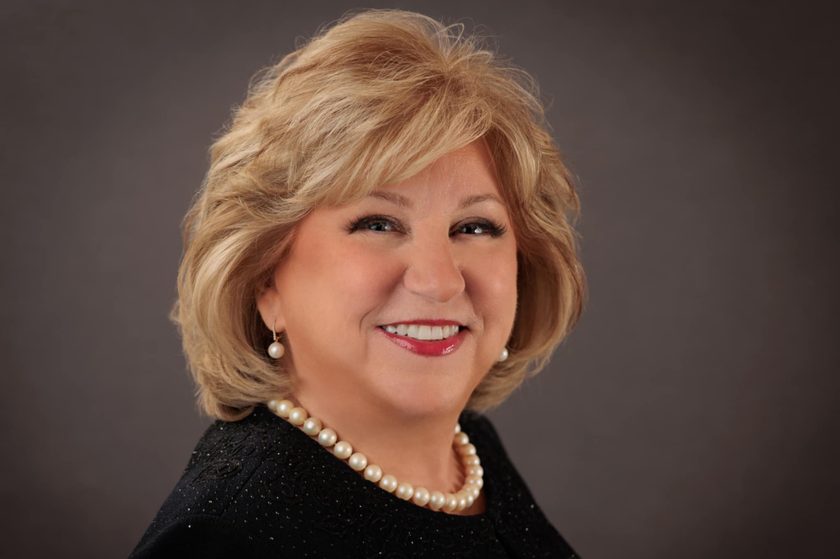- Sections :
- Crime & Public Safety
- Restaurants & Food
- Sports
- More
Categories
Preparing for the Calm Between the Storms

THE WOODLANDS -- While we may be in the final stretch of the 2021 Atlantic hurricane season that started in May, the recent blow-through of Nicholas should remind us that a lot of things can happen between now and the official end of the season on November 30… and beyond.
If anything taught local residents from the past several years of storms such as Hurricane Ike and the Tax Day floods, it is that no one is safe from rising waters or falling tree limbs if nature is determined. Any homeowner, driver, or apartment dweller is one gust of wind or extra hour of rain away from being a statistic on the evening news.
Even as we breathe a sigh of relief that Nicholas left us mainly unplagued, the churnings in the Atlantic continue, and we can take this “down time” to take stock of our stormy needs should Odette, Peter, Rose, Sam, Teresa, Victor, or Wanda decide to form in the Gulf of Mexico and head our way.
Here are a list of a few things that you can do in the relative quiet to “hope for the best but prepare for the worst” in stormy anticipation:
Flood Insurance - The difference between having your house flood while covered by flood insurance and while not is between night and day. Most - if not all - homeowner’s insurance policies do not cover flooding from rising waters. FEMA is the biggest - but not the only - provider of flood insurance. If you want a FEMA policy from the National Flood Insurance Program, use its provider locator at www.floodsmart.gov to find insurers in your state. NFIP policies are sold through agents of regular insurance companies, so you can also contact your normal insurance company and be relatively guaranteed of success.
It’s important to note that flood insurance typically has a 30-day moratorium between the time it is established and when coverage takes effect, so chances are if you wait until a hurricane starts moving our way before calling, your best bet is to hope for another floodless Nicholas.
Homeowner’s, Auto, and Rental Insurances - The flip side to being covered against flood damage is being covered for all other storm-related damages to property and possessions. While typical homeowner’s insurance doesn’t cover damage from rising flood waters, flood insurance likewise doesn’t cover damages from rain, wind, or fallen trees. By maintaining your homeowner’s and auto insurance policies, you are much better equipped to afford damage to your roofs and your vehicles and replacement of your destroyed and damaged possessions. Additionally, if it’s not too late to add it, look into purchasing gap insurance for your auto - it pays the difference between what your car is deemed to be worth and what you would owe on it if it were totaled.
If you rent your property - whether from an apartment complex or a single-dwelling landlord, you would be well advised to purchase a renter’s policy. It is probably much less expensive than you think, and it will protect you against damage even if the landlord in question does not have coverage.
Pets - Whether you own dogs or cats, chickens or goldfish, you have extra responsibilities to your pets in the event of a major storm. It would behoove you to take this opportunity to gather together a list of pet-friendly hotels, homes of family and friends, and boarding facilities. Have grates and carry-cases ready to go, stocked with your pets’ favorite blankets, toys, and treats. If you happen to own saltwater fish, be prepared to improvise if your power goes out for extended periods of time.
Be a Prepper - If you think being stuck in a grocery checkout lane on a Friday afternoon is obnoxious, just wait until you sojourn to the local market in the middle of a storm to stock up on foods and supplies. Unfortunately, the survival instinct programmed into our collective DNA compels many of us to overstock in times of emergency, with the result that the shelves are almost immediately bare of bread and toilet paper. Instead, if you take this quiet time of fully stocked stores to grab an extra pack of Charmin for the pantry or loaf of bread for the freezer, you’ll be much better prepared to survive an extended period of being trapped in your home in relative comfort.
Families should practice scenarios that involve getting to safety even in total darkness. Flashlights with fully charged batteries should be kept in easy-to-access spaces near the major doors of your residence. USB battery power packs are incredibly inexpensive these days and hold a charge for a long time, so keeping extras in your purse or kitchen drawers will help you find a light in a gloomy situation.
Your pre-storm preparations can even extend beyond your house. Gasoline prices surge along with the weather, so while things are relatively quiet be sure to keep your tank filled. Learn all the ways in and out of your neighborhood without having to rely on GPS. Get to know all of your neighbors - it’s perfect weather for a block party! - and make sure everyone has each others’ contact information.
By taking this time before the next storm comes - which will definitely happen sooner or later - to prepare, you can enjoy much less stress even in the face of a hurricane.
Now's the perfect time for hurricane preparedness
If anything taught local residents from the past several years of storms such as Hurricane Ike and the Tax Day floods, it is that no one is safe from rising waters or falling tree limbs if nature is determined. Any homeowner, driver, or apartment dweller is one gust of wind or extra hour of rain away from being a statistic on the evening news.
Even as we breathe a sigh of relief that Nicholas left us mainly unplagued, the churnings in the Atlantic continue, and we can take this “down time” to take stock of our stormy needs should Odette, Peter, Rose, Sam, Teresa, Victor, or Wanda decide to form in the Gulf of Mexico and head our way.
Here are a list of a few things that you can do in the relative quiet to “hope for the best but prepare for the worst” in stormy anticipation:
Flood Insurance - The difference between having your house flood while covered by flood insurance and while not is between night and day. Most - if not all - homeowner’s insurance policies do not cover flooding from rising waters. FEMA is the biggest - but not the only - provider of flood insurance. If you want a FEMA policy from the National Flood Insurance Program, use its provider locator at www.floodsmart.gov to find insurers in your state. NFIP policies are sold through agents of regular insurance companies, so you can also contact your normal insurance company and be relatively guaranteed of success.
It’s important to note that flood insurance typically has a 30-day moratorium between the time it is established and when coverage takes effect, so chances are if you wait until a hurricane starts moving our way before calling, your best bet is to hope for another floodless Nicholas.
Homeowner’s, Auto, and Rental Insurances - The flip side to being covered against flood damage is being covered for all other storm-related damages to property and possessions. While typical homeowner’s insurance doesn’t cover damage from rising flood waters, flood insurance likewise doesn’t cover damages from rain, wind, or fallen trees. By maintaining your homeowner’s and auto insurance policies, you are much better equipped to afford damage to your roofs and your vehicles and replacement of your destroyed and damaged possessions. Additionally, if it’s not too late to add it, look into purchasing gap insurance for your auto - it pays the difference between what your car is deemed to be worth and what you would owe on it if it were totaled.
If you rent your property - whether from an apartment complex or a single-dwelling landlord, you would be well advised to purchase a renter’s policy. It is probably much less expensive than you think, and it will protect you against damage even if the landlord in question does not have coverage.
Pets - Whether you own dogs or cats, chickens or goldfish, you have extra responsibilities to your pets in the event of a major storm. It would behoove you to take this opportunity to gather together a list of pet-friendly hotels, homes of family and friends, and boarding facilities. Have grates and carry-cases ready to go, stocked with your pets’ favorite blankets, toys, and treats. If you happen to own saltwater fish, be prepared to improvise if your power goes out for extended periods of time.
Be a Prepper - If you think being stuck in a grocery checkout lane on a Friday afternoon is obnoxious, just wait until you sojourn to the local market in the middle of a storm to stock up on foods and supplies. Unfortunately, the survival instinct programmed into our collective DNA compels many of us to overstock in times of emergency, with the result that the shelves are almost immediately bare of bread and toilet paper. Instead, if you take this quiet time of fully stocked stores to grab an extra pack of Charmin for the pantry or loaf of bread for the freezer, you’ll be much better prepared to survive an extended period of being trapped in your home in relative comfort.
Families should practice scenarios that involve getting to safety even in total darkness. Flashlights with fully charged batteries should be kept in easy-to-access spaces near the major doors of your residence. USB battery power packs are incredibly inexpensive these days and hold a charge for a long time, so keeping extras in your purse or kitchen drawers will help you find a light in a gloomy situation.
Your pre-storm preparations can even extend beyond your house. Gasoline prices surge along with the weather, so while things are relatively quiet be sure to keep your tank filled. Learn all the ways in and out of your neighborhood without having to rely on GPS. Get to know all of your neighbors - it’s perfect weather for a block party! - and make sure everyone has each others’ contact information.
By taking this time before the next storm comes - which will definitely happen sooner or later - to prepare, you can enjoy much less stress even in the face of a hurricane.
Comments •

















